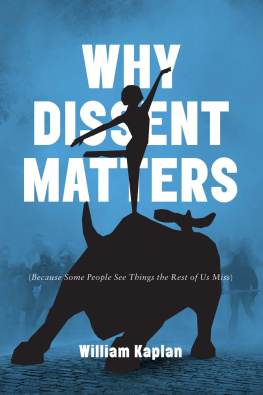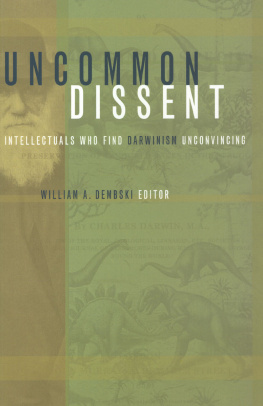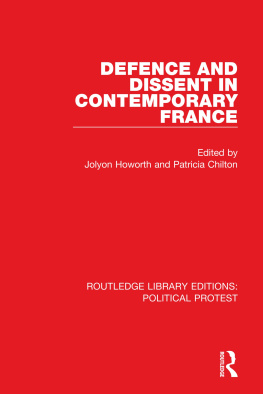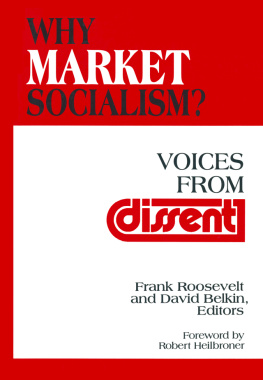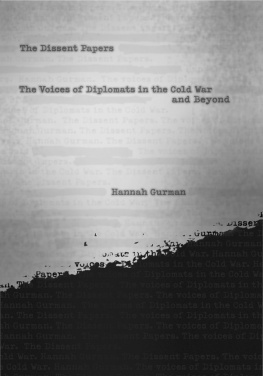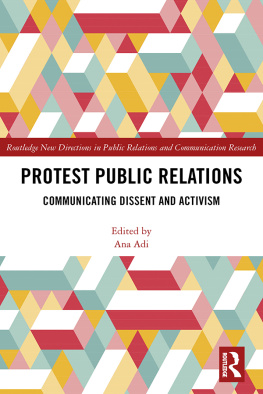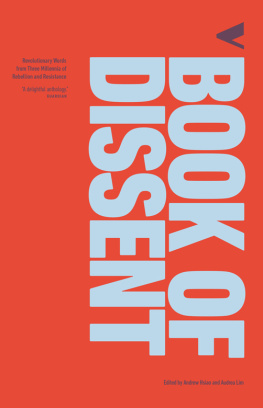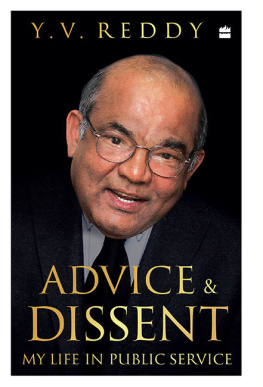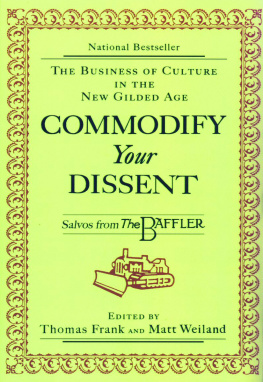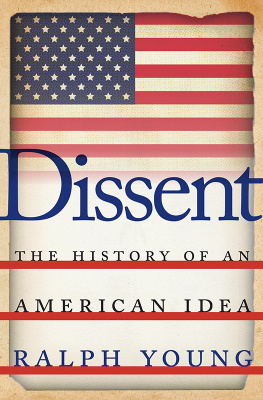
WHY DISSENT MATTERS

WHY DISSENT MATTERS
Because Some People See Things the Rest of Us Miss
WILLIAM KAPLAN
McGill-Queens University Press
Montreal & Kingston London Chicago
McGill-Queens University Press 2017
ISBN 978-0-7735-5070-4 (cloth)
ISBN 978-0-7735-5084-1 (ePDF)
ISBN 978-0-7735-5085-8 (ePUB)
Legal deposit second quarter 2017
Bibliothque nationale du Qubec
Printed in Canada on acid-free paper that is 100% ancient forest free (100% post-consumer recycled), processed chlorine free
McGill-Queens University Press acknowledges the support of the Canada Council for the Arts for our publishing program. We also acknowledge the financial support of the Government of Canada through the Canada Book Fund for our publishing activities.
Library and Archives Canada Cataloguing in Publication
Kaplan, William, 1957, author
Why dissent matters : because some people see things the rest of us miss / William Kaplan.
Includes bibliographical references and index.
Issued in print and electronic formats.
ISBN 978-0-7735-5070-4 (cloth).
ISBN 978-0-7735-5084-1 (ePDF).
ISBN 978-0-7735-5085-8 (ePUB)
1. Dissenters Canada. 2. Dissenters United States. 3. Social change Canada. 4. Social change United States. I. Title.
JC328.3.K37 2017 | 303.6'1 | C2017-901279-7 |
C2017-901280-0 |
For J.L. Granatstein
Contents
CHAPTER 1
The Tenth Man
CHAPTER 2
There Really Is Nothing New under the Sun
CHAPTER 3
A Woman of Fortitude and Determination: Frances Oldham Kelsey
CHAPTER 4
Rachel Was Right: Rachel Louise Carson
CHAPTER 5
Dissenting Juries and Judges
CHAPTER 6
Sentenced to Death
CHAPTER 7
Occupy Wall Street and This, That, and the Other Place
CHAPTER 8
How Not to Make Public Policy
CHAPTER 9
The Clock Is Ticking and Its 1973 All Over Again
CONCLUSION
Further Reflections on Our Dissenters
Preface
We all know one important thing about life. Some of our most fiercely held beliefs will turn out to be completely wrong.
Consider South Africa and Northern Ireland. There was no possible solution to the continuing crisis in either country: just unrelenting irreconcilable hatred and mutual loathing between the oppressor and the oppressed. No one thought it would or could ever end. But after decades of violence, with thousands of people murdered, terrorized, tortured, imprisoned, and maimed, suddenly there was peace. Real peace. Lasting peace. It came about thanks to the dissenters who had challenged the status quo along with everything that had once been believed to be true.
In another example, it looked as though the Cold War would last forever. And then it was over.
What happened? The Berlin Wall came tumbling down. It had been built to keep people in the east end of the city from going west, thereby turning all of East Germany into a huge prison state. It was guarded by murderous, bloodthirsty soldiers with orders to shoot on sight. But on 9 November 1989 East German border guards lowered their machine guns. The next day, deliriously happy East and West Germans began to reduce the wall to rubble, and the entire Soviet Empire completely disintegrated, almost overnight. Because of the wisdom and restraint of a true and brave dissenter Mikhail Gorbachev the Eastern Bloc collapsed not with a bang but a whimper. Recent years, activist Naomi Klein has written, have been filled with moments when societies suddenly decide they have had enough.
If you need more proof about how quickly things can change, look no further than the rapid acceptance of a group of citizens once considered criminal: the lesbian/gay/bisexual/transgender (LGBT) community.
In 1965 a Northwest Territories mechanic named Everett George Klippert was jailed for gross indecency after admitting to engaging in sex with other men. A court-appointed psychiatrist determined he was incurably homosexual, which was undoubtedly correct. Two years later, the Supreme Court of Canada confirmed that he could be held in prison indefinitely as a dangerous sexual offender for having consensual sex with other adults. That was 1967, the year that amendments were introduced to Canadas Criminal Code. Justice Minister Pierre Elliott Trudeau told Canadians that theres no place for the state in the bedrooms of the nation, but it was too late for the jailed Klippert. The struggle for equality was about to begin. Strikingly, it began to gather steam in the wake of the AIDS epidemic and also in response to it.
In the 1980s, as the AIDS plague ravaged gay communities, tens of thousands, and then hundreds of thousands, of gay men were dying. Nobody seemed to care and some actually approved, seeing Gods plan at work. The rage that erupted from this public and political indifference soon mobilized LGB communities. The AIDS Coalition to Unleash Power (ACT UP), founded in 1987, was one of the groups that fought back. Its motto was: Silence = Death. There was nothing silent about the organization, which began by demanding greater access to experimental AIDS drugs. ACT UP played a huge role in mobilizing LGB communities across North America, giving birth to the modern LGB equal-rights movement. Many became advocates for equal marriage (the first Canadian court challenge to recognize same-sex marriage was in 1974). For most Canadians and this was only a few years ago the idea was incomprehensible: men marrying men, women marrying women? The dissenters were fighting an uphill battle, but they soldiered on with persistence and courage, often in the face of unbelievable hostility.
Attitudes did begin to change. LGBT people became increasingly visible, more people came out to their families and friends, where most commonly they were welcomed, and this change in attitude was reflected in society at large, especially in popular culture. On television, Oprah interviewed gay couples, Ellen broadcast the famous coming-out episode in 1997 (along with a parental advisory), and Friends had its own gay wedding.
Canadian public-opinion polls began to show increasing acceptance for marriage equality. In 2002 the New York Times announced that it would begin publishing reports of same-sex commitment ceremonies in its Sunday Styles section, with executive editor Howell Raines stating On 10 June 2003 the Ontario Court of Appeal approved equal marriage, followed later that day by the first marriage of a same-sex couple at Torontos City Hall.
One of the authors of the court judgment was none other than Chief Justice Roy McMurtry, who, in an earlier incarnation as Ontarios attorney general, had allowed the prosecution to proceed of men arrested during the infamous bathhouse raids the Canadian consciousness-raising equivalent of the 1969 Stonewall Riots. During Operation Soap, as the Toronto police called it, more than 300 men were taken into custody in the 5 February 1981 sweep the largest apprehension in Canada since the 1970 October Crisis. The first Pride parades were protest marches against this very raid. But things quickly changed. Today, the Pride March is a community celebration, and McMurtry, once burned in effigy, became the gay communitys patron saint.
In June 2016 the Toronto police chief issued an official apology for the raids. And Klippert? He was kept in jail until 21 July 1971, and he died in 1996. In 2016 Prime Minister Justin Trudeau announced his governments plan to recommend a posthumous pardon. By then, equal marriage was a widely accepted fact of life, and not just in Canada. In 2015 the Supreme Court of the United States ruled that it was unconstitutional to limit marriage to one man and one woman. It was a close call, five to four. One of the dissenting judges was the chief justice, John G. Roberts. While he opposed the majority result, he could not help but acknowledge the moment: Many people will rejoice at this decision, he wrote, and I begrudge none their celebration. That night the White House was lit up in rainbow colours, and President Barack Obama called it a victory for America. The unthinkable had become the new normal.
Next page
